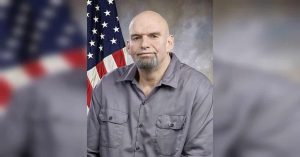SC Proceeds with Inmate's Execution After Supreme Court Denies Appeal
The execution of Richard Moore was scheduled to take place this Friday at Broad River Correctional Institution, sparking intense debate over the justice of his death sentence.
Following a denied appeal by the U.S. Supreme Court, Richard Moore faced execution for a 1999 murder committed during a robbery, as UPI reports.
In 1999, Moore was convicted of killing James Mahoney, a convenience store clerk in Spartanburg, South Carolina, amid a robbery, and his execution, set for Friday evening, marked South Carolina's second incident of capital punishment in more than a decade.
U.S. Supreme Court Declines Moore's Appeal
The U.S. Supreme Court recently rejected Moore's final appeal, which has put the spotlight back on his case. The decision came despite various calls for clemency from figures including the trial judge and jurors involved in the 1999 case.
Moore had initially been slated for execution in 2022 and had opted for death by firing squad over the electric chair, a choice offered by South Carolina due to difficulties in acquiring lethal injection drugs since 2011.
South Carolina's pause on executions since 2011, owing to the scarcity of lethal injection drugs, was briefly interrupted by the execution of Freddie Owens in September, indicating a possible resumption of capital punishment in the state.
Clemency Petitions and Legal Debates Surrounded Execution
Moore's legal representatives sought clemency from Gov. Henry McMaster, arguing that Moore's case did not meet the criteria for capital murder. The petition for clemency has also been signed by the judge and two jurors from Moore's trial, suggesting a rare discord concerning the appropriateness of the death penalty in this instance.
Lindsey Vann, Moore’s lawyer, expressed that the trial judge "has spent years reflecting on this case and has discovered that Richard’s case is unique among all death penalty cases in South Carolina." She hoped these reflections will influence the governor's decision.
However, prosecutors maintained that Moore showed no remorse after the robbery, during which he fled with $1,400, neglecting to assist the dying victim.
Significant Voices in Clemency Advocacy
John Ozmint, former director of the South Carolina Department of Corrections and a signatory of the clemency petition, stated that Moore’s case wouldn't typically warrant a death sentence in most counties.
He voiced strong doubts about the consistency in applying the death penalty, adding to the controversial nature of Moore's execution.
Ozmint also expressed a desire for the governor to allow Moore to "continue to pour into the lives of others," highlighting the potential reformative aspects of commuting his sentence to life imprisonment.
Implications of Execution Decision
The execution of Richard Moore not only underscores the broader issues surrounding capital punishment in the U.S. but also highlights specific concerns about the application of justice in South Carolina.
As the date of the execution drew near, all eyes were on Gov. McMaster, whose decision affirmed the state's stance on capital punishment.




